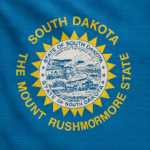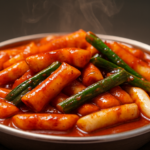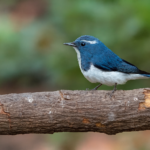
Duke University, a prestigious institution located in Durham, North Carolina, is renowned for its rich history, academic excellence, and vibrant campus life. Founded in 1838 as Trinity College and renamed in 1924 after a generous endowment from James Buchanan Duke, Duke University has grown into a leading research university with a global impact. Here are some fascinating facts that highlight the unique aspects and achievements of Duke University.
Founding and Renaming: Duke University was established in 1838 in Randolph County, North Carolina, as a private subscription school named Brown’s Schoolhouse. It became Union Institute Academy in 1841 and was later renamed Normal College in 1851 and Trinity College in 1859. The school moved to Durham in 1892 due to the support of Washington Duke, a powerful industrialist in the tobacco industry. In 1924, James Buchanan Duke, Washington’s son, established The Duke Endowment, contributing $40 million, equivalent to over $680 million today. This endowment led to the college being renamed Duke University in honor of his father and the Duke family’s ongoing contributions to the institution.
Underwater Library: The Lillian Goldman Law Library at Duke University features an innovative and rare underwater reading room. This unique space has 55 feet of windows that provide an immersive view of a vibrant coral reef, making it one of the few libraries in the world to offer such an experience. This underwater room is part of the university’s efforts to combine academic pursuits with unique, tranquil environments, enhancing the study experience for law students by blending natural beauty with scholarly resources.
Nobel Laureates: Duke University boasts an impressive history of academic excellence, having produced 15 Nobel Laureates across various fields. Among these, seven have received the Nobel Prize in Physics, and five in Medicine. These laureates include distinguished individuals such as Robert Lefkowitz, who won the Nobel Prize in Chemistry in 2012 for his work on G-protein-coupled receptors. Duke’s commitment to research and innovation has created an environment where groundbreaking discoveries are made, contributing significantly to global scientific advancements.
Tallest Tower: Completed in 1930, the Duke University Chapel is an architectural marvel standing at 217 feet. For over 60 years, it was the tallest building in Durham, North Carolina. Designed by African American architect Julian Abele, the chapel features Collegiate Gothic style and serves as the centerpiece of the West Campus. Its tower houses a 50-bell carillon and a Flentrop organ, making it not only a spiritual center but also a venue for music and cultural events. The chapel’s height and design make it a prominent landmark and symbol of the university’s rich heritage.
Largest Art Collection: The Nasher Museum of Art at Duke University holds the world’s largest collection of works by Ellsworth Kelly, a renowned American abstract artist known for his bold colors and simple forms. With over 1,300 pieces, the collection includes paintings, sculptures, and prints that span Kelly’s prolific career. The museum itself, designed by Rafael Viñoly and opened in 2005, serves as a hub for contemporary art and art history, providing students, scholars, and visitors with access to significant works and fostering an appreciation for modern art.
Early Basketball History: Duke’s men’s basketball team made history on February 28, 1940, when they played in the first-ever nationally televised college basketball game. This historic game was against their arch-rival, the University of North Carolina, and was broadcast by NBC from Madison Square Garden in New York City. This event marked a significant moment in the evolution of college basketball, bringing the sport to a wider audience and setting the stage for the future popularity and commercialization of NCAA basketball.
Coach K: Mike Krzyzewski, famously known as “Coach K,” has been the head coach of Duke’s men’s basketball team since 1980. Over his illustrious career, he has accumulated a record 1,202 wins, making him the most successful Division I men’s college basketball coach in history. Under his leadership, Duke has won five NCAA Championships, 15 ACC Tournament titles, and 12 ACC regular-season titles. Coach K’s influence extends beyond wins and losses; he has mentored countless players who have gone on to successful careers in the NBA and other professional endeavors, making him a legendary figure in the world of sports.
Lacrosse Championships: Duke University’s men’s lacrosse team has established itself as a powerhouse in NCAA lacrosse, winning a record 22 National Championships. This remarkable achievement highlights the program’s consistent excellence and dominance in the sport. The Blue Devils have produced numerous All-Americans and professional players, contributing to the growth and popularity of lacrosse. The team’s success is a testament to the university’s strong athletic programs and commitment to fostering talent across a range of sports.
First Black Woman Rhodes Scholar: Alma Vivian Hitchcock made history in 1964 by becoming the first Black woman to be awarded a Rhodes Scholarship while attending Duke University. This prestigious international scholarship allowed her to study at the University of Oxford, breaking significant racial and gender barriers in higher education. Hitchcock’s achievement paved the way for future generations of women and minority scholars, reflecting Duke’s evolving commitment to diversity and inclusion within its academic community.
Largest Living Christmas Tree: During the holiday season, the Duke Gardens feature a spectacular display with a 145-foot-tall loblolly pine tree, considered the world’s largest living Christmas tree. This tradition attracts visitors from all over, who come to witness the tree adorned with thousands of lights and decorations. The tree is a focal point of festive celebrations and community events, embodying the spirit of the season and highlighting the natural beauty of the Duke Gardens, one of the most visited public gardens in the United States.
Pulitzer Prize Alumni: Duke University boasts an impressive array of alumni who have won Pulitzer Prizes, with a total of nine laureates among its graduates. This distinguished group includes notable figures such as Doris Kearns Goodwin, a celebrated historian and author, and Kathryn Schultz Miller, a prolific playwright and novelist. Their achievements span various categories, including journalism, fiction, and history, reflecting the university’s strong emphasis on nurturing talent in the humanities and social sciences. The success of these Pulitzer Prize winners underscores Duke’s commitment to academic excellence and its role in shaping influential voices in literature and public discourse.
Hollywood Ties: Duke University has produced several prominent figures in the entertainment industry, including actresses Felicity Huffman and Allison Janney, and filmmaker Ava DuVernay. Felicity Huffman is known for her roles in “Desperate Housewives” and “Transamerica,” for which she received critical acclaim. Allison Janney, a versatile actress, has won multiple awards, including an Academy Award for her performance in “I, Tonya.” Ava DuVernay, an influential director and producer, has garnered recognition for her work on “Selma” and the Netflix series “When They See Us.” These alumni highlight Duke’s ability to cultivate talent that excels beyond academia and makes significant cultural impacts.
A Cappella Record: In 1988, Duke University students set a Guinness World Record for the longest continuous a cappella performance, lasting 40 hours and 3 minutes. This event showcased the talent and dedication of Duke’s vocal groups, bringing together members of various a cappella ensembles on campus. The performance not only highlighted the university’s vibrant musical culture but also fostered a sense of community and school spirit. This record-breaking achievement is a testament to the creativity and perseverance of Duke students, who continue to excel in both academic and extracurricular activities.
Haunted Gardens: The Sarah P. Duke Gardens are rumored to be haunted by the ghost of Sarah Pearson Duke, the wife of Benjamin Duke and a significant benefactor of the university. Legend has it that her spirit lingers in the gardens, particularly around the rose garden, which she may have designed herself. Visitors and staff have reported unusual occurrences, such as unexplained sounds and sightings, adding an element of mystery to the beautiful and serene environment. These ghostly tales contribute to the gardens’ allure, making them not only a place of botanical interest but also a site of local folklore and intrigue.
Artificial Heart Transplant: In 1967, Dr. Denny Brown performed the world’s first successful partial artificial heart transplant at Duke University Medical Center. This groundbreaking surgery marked a significant advancement in cardiovascular medicine, paving the way for future innovations in heart transplant procedures. The operation involved the implantation of an artificial heart valve, which helped sustain the patient until a suitable donor heart was available. This pioneering work at Duke contributed to the development of more advanced and lifesaving cardiac technologies, solidifying the university’s reputation as a leader in medical research and patient care.
Perkins Organ: The Gothic-style Duke Chapel houses the Perkins Organ, which boasts a staggering 5,622 pipes, making it one of the largest organs in the Southeast United States. Built by the renowned Aeolian Organ Company and installed in 1932, the Perkins Organ is known for its rich, powerful sound and intricate design. It plays a central role in the chapel’s religious services, concerts, and special events, attracting organists and music enthusiasts from around the world. The organ’s grandeur and historical significance enhance the spiritual and cultural experience of the Duke Chapel, making it a cherished symbol of the university’s musical heritage.
Extensive Libraries: The Duke University Libraries system encompasses a vast collection of over 18 million volumes, spread across several branches, including the William R. Perkins Library, Bostock Library, and Rubenstein Rare Book & Manuscript Library. This extensive collection supports the diverse academic and research needs of the university’s students, faculty, and scholars. The libraries provide access to a wide range of resources, from rare historical documents to cutting-edge digital materials. Duke’s commitment to maintaining such a comprehensive library system underscores its dedication to fostering a robust intellectual environment and facilitating groundbreaking research.
International Community: Duke University boasts a vibrant international community, with over 8,000 international students and scholars hailing from 150 countries. This diverse population enriches the campus culture, bringing a wide array of perspectives and experiences to the university. Duke’s commitment to global engagement is reflected in its numerous international programs, research collaborations, and study abroad opportunities. This international presence enhances the educational experience for all students, fostering a global outlook and preparing graduates to thrive in an interconnected world.
Sustainability Recognition: Duke University has been recognized for its sustainability efforts, ranking #1 in the Princeton Review’s “Green Colleges” list for 16 consecutive years, from 2007 to 2022. The university has implemented numerous green initiatives, including energy-efficient buildings, waste reduction programs, and sustainable transportation options. Duke’s commitment to sustainability is also evident in its academic programs, which offer courses and research opportunities focused on environmental issues. This long-standing recognition highlights Duke’s leadership in promoting environmental stewardship and sustainability within higher education.
First Black US Senator from the South: Edward Brooke, an alumnus of Duke University, made history in 1966 by becoming the first Black US Senator elected from the South since Reconstruction. Representing Massachusetts, Brooke served two terms in the Senate, where he was known for his advocacy on civil rights, housing, and urban development. His election marked a significant milestone in American politics, reflecting the progress of the civil rights movement and the changing political landscape of the era. Brooke’s achievements continue to inspire future generations of leaders and underscore Duke’s role in shaping influential figures in public service.
Marching Band: The Duke University Marching Band, known as “The Blue Devils,” is renowned for its innovative and high-energy performances. Founded in 1906, the band has a long history of entertaining audiences at football games, pep rallies, and other university events. The band’s performances often feature elaborate formations, creative musical arrangements, and a spirited showmanship that embodies the university’s vibrant school spirit. With a diverse repertoire that spans traditional fight songs to contemporary hits, the Blue Devils Marching Band plays a key role in fostering community and enthusiasm among Duke students and alumni.
Chandra X-ray Observatory: Duke scientists played a pivotal role in the development of the Chandra X-ray Observatory, one of NASA’s Great Observatories. Launched in 1999, Chandra has provided unprecedented insights into the high-energy universe, including the study of black holes, supernovae, and galaxy clusters. Duke researchers contributed to the design and construction of the observatory’s instruments, as well as the analysis of its data. Their involvement in this landmark project underscores Duke’s leadership in astrophysics and space science, advancing our understanding of the cosmos.
Emile Griffith: Boxer and humanitarian Emile Griffith attended Duke University on a basketball scholarship, showcasing his athletic versatility. Griffith went on to become a two-time world welterweight champion, known for his skill and resilience in the ring. Beyond his boxing career, he was a dedicated advocate for HIV/AIDS awareness and gay rights, having faced significant personal challenges due to his sexuality. Griffith’s legacy is one of both athletic prowess and social advocacy, reflecting Duke’s tradition of fostering individuals who make significant contributions both in their professional fields and in broader societal issues.
Investment Savvy: Duke University’s endowment, exceeding $40 billion, ranks among the largest endowments of any private university in the United States. This substantial financial resource supports the university’s mission by funding scholarships, faculty positions, research initiatives, and infrastructure improvements. Managed by the Duke University Management Company (DUMAC), the endowment’s growth and stability allow Duke to maintain its status as a leading institution of higher education, ensuring long-term financial health and the ability to invest in innovative programs and initiatives.
Duke Forest: Duke University safeguards the 7,044-acre Duke Forest, a unique ecosystem that serves as a crucial outdoor laboratory for scientific research and environmental education. Established in 1931, the forest encompasses a diverse range of habitats, including hardwood and pine forests, streams, and wetlands. It provides valuable opportunities for research in ecology, biology, and environmental science, as well as recreational activities for the community. Duke Forest’s management practices emphasize sustainability and conservation, reflecting the university’s commitment to environmental stewardship and the preservation of natural resources for future generations.
Frequently Asked Questions about Duke University:
What are the admissions requirements for Duke University?
Duke University has a highly selective admissions process. Here’s a breakdown of the key requirements:
Strong Academic Record: A competitive GPA (typically above 4.0) in rigorous coursework is crucial.
Standardized Testing: Scores from the SAT or ACT are generally required, though these may be going test-optional in the future.
Compelling Application Essay: The essay allows you to showcase your unique voice, experiences, and aspirations.
Extracurricular Activities: Demonstrating involvement in activities, leadership roles, and community service is highly valued.
Optional Interview: While not mandatory, an interview can provide a chance to connect with an admissions officer.
Additional Tips: Explore Duke’s website for specific requirements for your desired program and application deadlines. Strong letters of recommendation and a demonstrated interest in Duke can strengthen your application.
What are the strongest academic programs at Duke University?
Duke boasts excellence across various disciplines. Here are some of its most highly regarded programs:
Biomedical Sciences: Duke is a leader in medical research, with top-ranked programs in medicine, nursing, and public health.
Engineering: Pratt School of Engineering offers exceptional programs in areas like biomedical engineering, computer science, and robotics.
Social Sciences: Duke’s programs in economics, political science, and psychology are consistently ranked among the best in the nation.
Humanities: The Trinity College of Arts & Sciences offers rigorous programs in literature, history, philosophy, and the arts.
Business: The Fuqua School of Business provides a world-class education in areas like finance, marketing, and management.
Further Exploration: Research specific departments and programs on Duke’s website to understand their focus areas and strengths.
Does Duke University offer financial aid?
Yes, Duke University is committed to making education accessible. They offer a generous financial aid program with various options:
Need-based Scholarships and Grants: Financial aid packages are awarded based on demonstrated financial need.
Merit Scholarships: Duke recognizes exceptional students through merit-based scholarships.
Federal and State Aid: Students can qualify for federal and state grants to supplement their financial aid package.
Financial Aid Resources: Explore the financial aid section on Duke’s website for detailed information on eligibility, application procedures, and scholarship opportunities.
What is campus life like at Duke University?
Duke offers a vibrant and diverse campus experience. Here’s a glimpse:
Residential Colleges: First-year students live in residential colleges, fostering a strong sense of community.
Active Student Organizations: Over 500 student organizations cater to diverse interests, from academic clubs to cultural groups.
Division I Athletics: Duke has a strong athletics program with passionate fans.
Arts and Culture: The university offers a rich calendar of arts events, performances, and lectures.
Proximity to Durham: Students can explore the vibrant city of Durham, offering restaurants, museums, and historical sites.
Campus Life Exploration: Visit Duke’s website or connect with current students to get a deeper understanding of the campus environment.
How does Duke University prepare students for their future careers?
Duke equips students for success through various resources and programs:
Career Center: The Duke Career Center offers career counseling, resume workshops, and internship opportunities.
Experiential Learning: Duke encourages internships, research experiences, and study abroad programs to gain practical skills.
Alumni Network: Duke’s vast alumni network connects students with potential mentors and career opportunities.
Entrepreneurship Programs: Duke fosters innovation with programs like the LaunchLab incubator for student startups.
Pre-professional Programs: Certain programs like pre-med prepare students for rigorous professional schools.
Career Exploration: Explore Duke’s career resources and connect with alumni to understand how the university prepares students for their desired paths.









